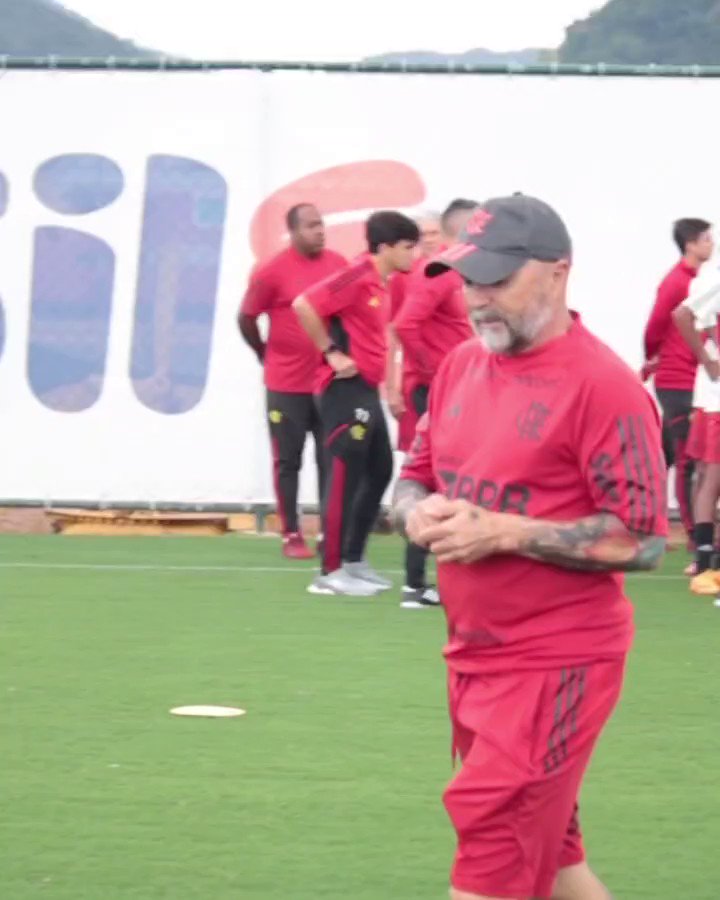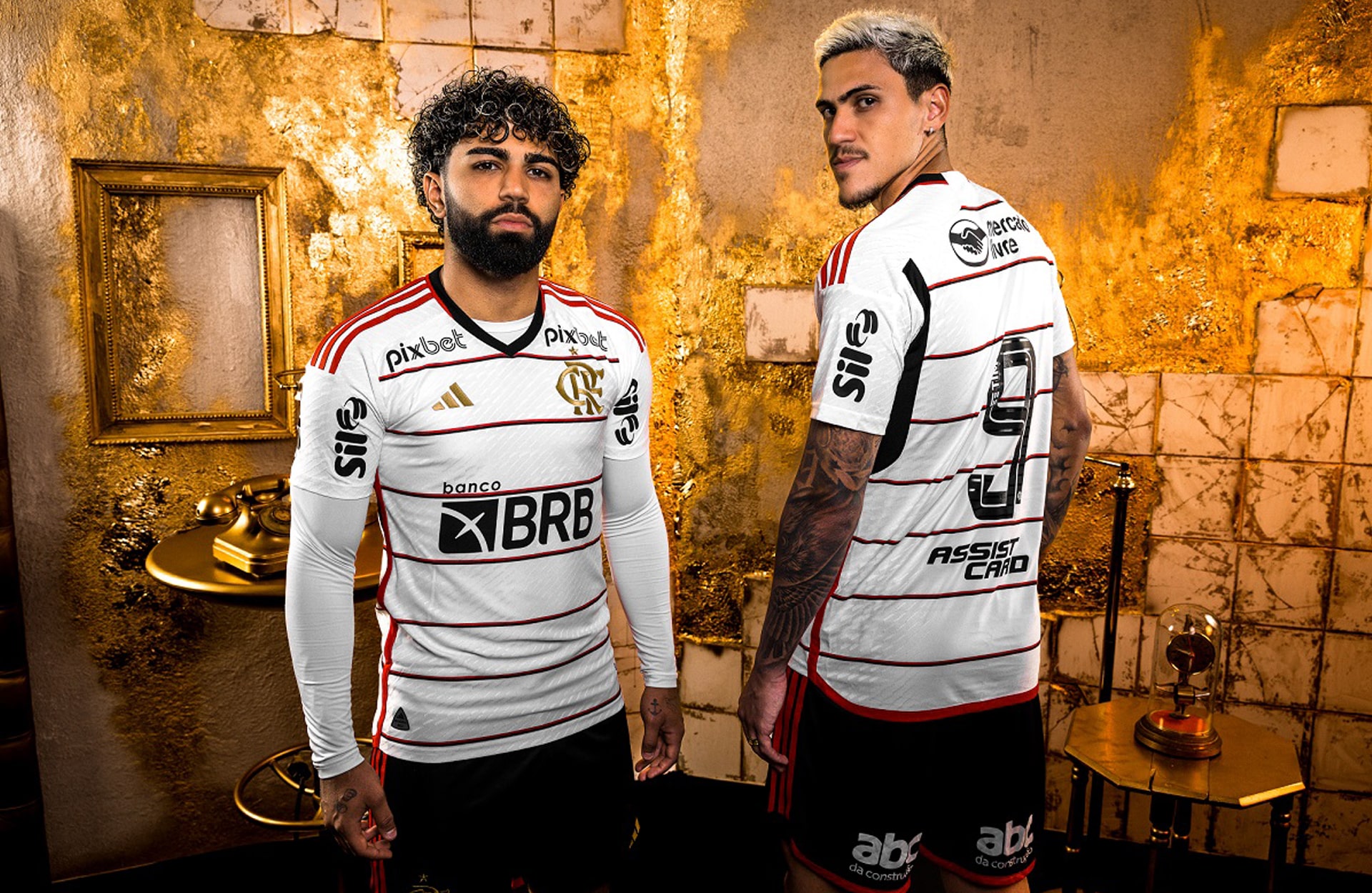Flamengo is more than just a football club; it is a cultural phenomenon that resonates deeply with millions of fans worldwide. Founded in 1911, Flamengo has become an integral part of Brazil's sports landscape and a symbol of pride for its supporters. From its humble beginnings to becoming one of the most successful clubs in South America, Flamengo's journey is nothing short of inspiring.
Flamengo's influence extends beyond the pitch, shaping Brazilian culture and inspiring generations. The club's iconic red-and-black colors are instantly recognizable, and its passionate fanbase, known as "Nação Rubro-Negra," is one of the largest in the world. Flamengo's story is one of triumph, resilience, and dedication, making it a global football powerhouse.
In this article, we will delve into the rich history of Flamengo, explore its achievements, analyze its playing style, and examine its impact on Brazilian society. Whether you're a die-hard fan or a casual observer, this article will provide you with a comprehensive understanding of what makes Flamengo so special.
Read also:Whitney Oc The Rising Star Redefining Music And Entertainment
Table of Contents
- History of Flamengo
- Major Achievements
- Flamengo's Playing Style
- The Flamengo Fanbase
- Maracanã: Flamengo's Home Ground
- Flamengo's Youth Academy
- Flamengo's Rivalries
- Financial Strength of Flamengo
- Global Impact of Flamengo
- The Future of Flamengo
History of Flamengo
Flamengo was officially founded on November 15, 1911, in Rio de Janeiro, Brazil. Initially established as a rowing club, it quickly expanded into other sports, including football. The club's name, Flamengo, was inspired by the neighborhood where it was founded, and its colors—red and black—were chosen to represent passion and strength.
Early Years
In its early years, Flamengo struggled to gain recognition in the competitive Brazilian football scene. However, the club's perseverance paid off when it won its first state championship in 1942. This victory marked the beginning of Flamengo's rise to prominence and laid the foundation for future successes.
Expansion and Growth
Throughout the decades, Flamengo continued to grow and evolve. The club invested heavily in its infrastructure, including the development of its youth academy, which has produced some of the world's best players. Flamengo's commitment to excellence has been a driving force behind its sustained success.
Major Achievements
Flamengo's trophy cabinet is a testament to its dominance in Brazilian and international football. The club has won numerous titles, both domestically and internationally, solidifying its status as one of the most successful football clubs in the world.
Domestic Success
- Campeonato Brasileiro: 9 titles
- Copa do Brasil: 7 titles
- Campeonato Carioca: 44 titles
International Glory
- CONMEBOL Libertadores: 3 titles
- FIFA Club World Cup: 1 title
- Copa Sudamericana: 1 title
Flamengo's achievements are a reflection of its commitment to excellence and its ability to adapt to changing circumstances in the football world.
Flamengo's Playing Style
Flamengo is renowned for its attacking and dynamic playing style, which emphasizes creativity and flair. Under the guidance of talented coaches, the club has developed a reputation for producing exciting and skillful football.
Read also:Aime Leon Dore A Comprehensive Exploration Of The Iconic Fashion Brand
Tactical Approach
Flamengo's tactical approach revolves around controlling possession, creating scoring opportunities, and maintaining a solid defensive structure. The club's midfielders are often tasked with dictating the pace of the game, while its forwards are expected to capitalize on chances created.
Key Players
Flamengo boasts a roster filled with world-class players who contribute to its success. Some of the most notable players in Flamengo's history include:
- Zico
- Gabriel Barbosa (Gabigol)
- Vinícius Júnior
The Flamengo Fanbase
Flamengo's fanbase, known as "Nação Rubro-Negra," is one of the largest and most passionate in the world. The club's supporters are known for their unwavering loyalty and dedication, creating an electric atmosphere at every match.
Global Support
While Flamengo's core fanbase is concentrated in Brazil, the club has a significant following worldwide. Fans from all corners of the globe unite under the Flamengo banner, celebrating the club's successes and supporting it through thick and thin.
Maracanã: Flamengo's Home Ground
The Maracanã Stadium, located in Rio de Janeiro, serves as Flamengo's home ground. With a seating capacity of over 78,000, it is one of the largest and most iconic stadiums in the world. The atmosphere at Maracanã during Flamengo matches is nothing short of electric, with fans creating a vibrant and energetic environment.
Historical Significance
The Maracanã Stadium has witnessed some of the most memorable moments in football history, including Flamengo's triumphs in major competitions. Its historical significance and architectural beauty make it a must-visit destination for football fans worldwide.
Flamengo's Youth Academy
Flamengo's youth academy, known as "Ninho do Urubu," is one of the most prestigious in the world. The academy has produced numerous world-class players, including Zico, Ronaldinho, and Vinícius Júnior, and continues to develop young talent for the club.
Focus on Development
The academy places a strong emphasis on technical skill, tactical awareness, and physical conditioning. Players are trained by experienced coaches who instill in them the values and traditions of Flamengo, ensuring that they are well-prepared for the demands of professional football.
Flamengo's Rivalries
Flamengo's fierce rivalries add an extra layer of excitement to Brazilian football. The club's most notable rivalries include:
Flamengo vs. Fluminense
The Clássico Vovô, as it is known, is one of the oldest and most intense rivalries in Brazilian football. Matches between Flamengo and Fluminense are always highly anticipated and often result in thrilling encounters.
Flamengo vs. Vasco da Gama
The Clássico dos Milhões is another fiercely contested rivalry, with Flamengo and Vasco da Gama battling it out for supremacy in Rio de Janeiro. The passion and intensity displayed during these matches are unmatched.
Financial Strength of Flamengo
Flamengo is one of the wealthiest football clubs in South America, with a robust financial structure that supports its operations. The club generates revenue through various channels, including broadcasting rights, sponsorships, and merchandise sales.
Investment in Infrastructure
Flamengo has invested heavily in its infrastructure, including the development of state-of-the-art training facilities and the renovation of the Maracanã Stadium. These investments ensure that the club remains competitive on both the domestic and international stages.
Global Impact of Flamengo
Flamengo's influence extends far beyond the football pitch, shaping Brazilian culture and inspiring millions of fans worldwide. The club's commitment to social responsibility and community engagement has further enhanced its global reputation.
Community Initiatives
Flamengo actively participates in various community initiatives aimed at improving the lives of underprivileged individuals. The club's outreach programs focus on education, health, and sports development, making a positive impact in the communities it serves.
The Future of Flamengo
Flamengo's future looks bright, with the club continuing to build on its successes and expand its global presence. The club's strategic planning and visionary leadership ensure that it remains at the forefront of the football world.
In conclusion, Flamengo is a football club with a rich history, impressive achievements, and a passionate fanbase. Its commitment to excellence, both on and off the pitch, has made it a global football powerhouse. As Flamengo continues to grow and evolve, its impact on Brazilian society and the football world will undoubtedly endure for generations to come.
We invite you to share your thoughts and experiences as a Flamengo fan in the comments section below. Don't forget to explore our other articles for more insights into the world of football.


